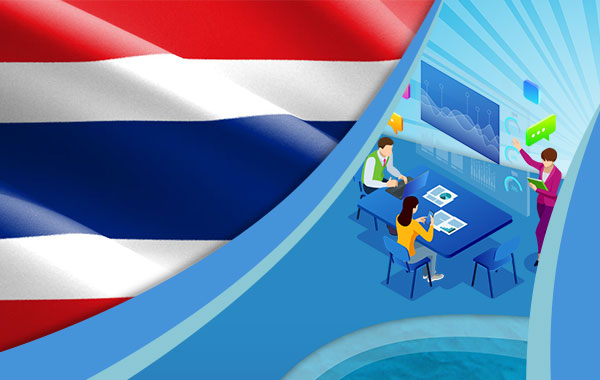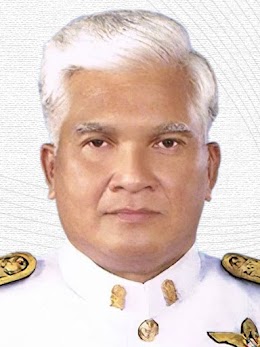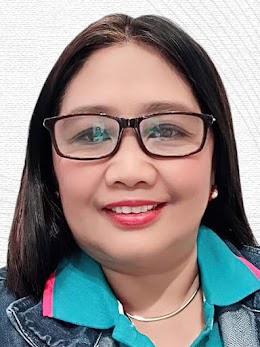
DATE: March 21–25, 2022 |
PARTNER ORGANIZATION: Office of Vocational Education Commission (OVEC), Ministry of Education, Thailand |
PARTICIPANTS' PROFILE: This in-country program is aimed at educational personnel at the OVEC whose roles involve identifying, designing, developing, implementing and evaluating TVET projects. |
Project management is the art of managing the project and its deliverables with a view to produce defined finished products, processes or services. Project management includes: identifying requirements, establishing achievable objectives, balancing the competing demands from the different stakeholders and ensuring that a commonality of purpose is achieved. Most of all, project management is about organizing a team of individuals and optimizing their various talents and skills to achieve targets on time, on budget and with minimal disruption to the rest of the business.
In order to stay ahead of the pack in today’s competitive and chaotic global economy, all organizations irrespective of sectors and geographical borders are turning to project management to consistently deliver business results. Organizations that adhere to project management methods and strategies see lower costs, greater efficiencies, improved customer and stakeholder satisfaction, reduced risks, and greater competitive advantage - all vital in surviving the today’s crisis. The UK-based Economist Intelligence Unit reported that 80 percent of global executives believed having project management as a core competency helped them remain competitive during the recession.
Organizations deliver continuous and ongoing operations while projects are temporary ventures with defined start and end dates to produce unique results. However, the uniqueness of project results improves the experience and expertise of project managers to draw blueprints or steps and develop the end products. In addition, they become more adept in seamlessly integrating resources across the organization, and in utilizing communication, planning and budgeting skills to bring projects to completion.
Project management is important to the organization for many reasons, foremost is for strategic alignment, to link the organization’s structure and resources with the project strategy and ultimate objective. The strategy encompasses the entire organization, dictating project execution at every level and aiming to deliver value at each step along the way. Secondly, project management follows a structured framework to ensure a scientific approach of planning tasks, achieving objectives, and managing risks. Without a framework, it would be very difficult for organizations to successfully execute the projects within the constraints of time, scope and quality and deliver the required results. Thirdly, project management reduces project costs by optimized use of resources, improving efficiency, and decreasing risks.
In the TVET sector, project management is important since it enhances support mechanisms for reforming the ecosystem with a view to have a new development pattern which holds a culture of economically, environmentally and socially sustainable development. The key aim to improve the quality and relevance, access to and equity within and governance and management of the TVET system with interventions around curricula, labour market needs, quality assurance, standards and capacity of the trainers, and crosscutting themes on gender and inclusivity. Nowadays, the ability to create innovation is the key to continuously improving the quality of training towards the new learning requirements and particularly in TVET effectively delivers high-quality education and training in Southeast Asia.
Thus, project management and its practices and requirements same have become indispensable to the project manager and they form the basis of much of what is achieved during the course of a project. The idea of a project being managed professionally lends itself to the concepts and processes laid out for the project management practitioners.
By the end of this course the participants will be able to:
- Gain knowledge, experiences and skills in designing and developing projects in TVET
- Integrate organizational strategies with project development in TVET
- Discuss the issue of project management for TVET organizations
The expected outcome of this intensive and highly interactive in-country program is the strengthened capacity of TVET practitioners to design results-based projects and to develop real proposals that can be submitted to donors for funding.
The expected outputs are:
- Proposed Project Design. To be drafted and presented by the participants (in 4-5 groups) following simple steps in designing results-based project, using a range of tools including the Logical Framework Matrix;
- Action Plan. To be drafted and presented by the participants (in groups) based on a series of sessions featuring principles, processes, and tips for transforming the project ideas;
- Trained TVET Practitioners. About 20 participants increased their awareness on the global trends and challenges in TVET and the knowledge and skills on the basics of project management, role of stakeholders, and the project cycle; and
- Modules and Learning Materials. The resource speakers develop theme papers, presentations, activity worksheets and other supplementary /materials for use during the in-country program, and similar future programs.
- Special Lecture: Revisiting Global Trends and Challenges in TVET: Reflections for Project Identification. This special lecture will provide the participants a view of global trends and challenges, which are springboard for them to identify project prospects. Topics on decent work, social cohesion, labour market demand and supply, TVET policies and systems, access for marginalized groups, digital skills, and informal economy will be subjects of discussions.
Theme Papers
- Theme Paper 1: Basics of Project Management. The first theme paper provides an introduction to project management – what is a project, project cycle, project standards, and the social inclusion aspects of the project cycle – gender, persons with disabilities (PWDs), indigenous peoples. Some generic tools for selecting, identifying, planning, implementing, monitoring, evaluating and closing projects will also be discussed.
- Theme Paper 2: Identifying and Conceptualizing Projects. The learning objective of this paper is to understand the activities when formulating the project. This is the first phase of the project cycle, which consists of two steps that lead to the development of the project concept document. The first step is identifying a project through problem analysis, need assessment, and identification test by conducting a feasibility study and logical framework analysis. The second step is project conceptualization, the initial process of designing a project that leads to a project concept document. The project concept is the basis on which the interest of potential donors is secured.
- Theme Paper 3: Developing the Project Proposal. This paper explains the main steps in preparing the project proposal also called a project design document. This includes a detailed situation analysis, stakeholder analysis and engagement, an analysis of problems and opportunities, an articulation of the proposed project’s intended results, and means of achieving results (including a logical framework, indicators and a monitoring plan, a risk analysis on environmental and social safeguards, the budget, as well as the risk and cost-benefit analysis.
- Theme Paper 4: Project Implementation and Monitoring. This paper includes all of the activities that will lead to successful project implementation, including preparing implementation plans, managing project teams and the project steering committee, providing technical input, supervising projects, undertaking monitoring activities, and preparing technical and financial reporting.
- Project Evaluation and Closure. The paper includes preparation of the evaluation Terms of Reference, responsibilities under the Monitoring and Evaluation Policy, the evaluation process, using the results of evaluations, and the management response. It will also capture lessons from the project for future use.
Group Work
- Group Work 1. Issues and Challenges in Project Management in TVET
- Group Work 2. Developing the Project Concept Note: Situation Analysis, Stakeholder Analysis, and Results Chain
- Group Work 3. Preparing the Project Proposal: Logical Framework Matrix, Risk Analysis, Financial Analysis
- Group Work 4. Outlining the Implementation and Monitoring Plan
- Group Work 5. Assessing Project Design with DAC Criteria
- Group Work: Presenting the Project Proposal
Instructional Strategies
The in-country program involves different learning modalities such as:
- Theme paper presentations
- Brainstorming and Experience sharing
- Individual Task and Group workshops
- Scenario building
To conduct the program smoothly, the following facilities are required:
- Internet Connection (5Mbps or higher) preferably wired LAN or WiFi
- Virtual Room (for Opening, Closing Ceremonies & Invited Talks)
- Zoom App installed in mobile device or personal computer
- Desktop Computer or Laptop
- Webcam, Speakers and microphone or earphones with microphine
- Computer/laptop (Individual participant*) with the following specifications:
- Core i3 (equivalent or higher)
- 4 GB RAM or higher
- Zoom App
- Google Chrome browser
- Any office suite software (MS Office, WPS Office, Google Drive, etc.)
|
Prior to his appointment as the Director General, he was a professor at the Department of Textile and Clothing Technology, University of Moratuwa, Moratuwa, Sri Lanka since 2015. Here also held key administrative posts during his career: as a former Vice Chancellor of the University of Vocational Technology (2016-2019), former Chairman of the Centre for Open and Distance Learning (CODL) of the University of Moratuwa (2015-2016), and former head of the Department of Textile and Clothing Technology (2009-2012). He also served as the Chairman of Alethea International School (2017-2021), an independent non-executive Director of Orit Apparels Lanka Ltd. (2014-2016), and Sri Lanka Institute of Textile and Apparel (2010-2015). He also served as the Director of Technical and Quality Assurance of Brandix Textiles Ltd (2013-2014). He also served as chairman and member of various public sector strategic and technical committees. He also published over 60 research publications on topics related to textile engineering and educational management, of which over 30 are international refereed journal publications. He was honored with 18 national and international awards including Emerald Literary Award (2018), President's Award for Scientific Publications (2017), and NRC Merit Award for Scientific Publication (2016, 2011). The World Education Congress also honored him with the award for Outstanding Contribution to Education in “Sri Lanka Education Leadership Awards” in 2018. Prof. Wickramasinghe is a graduate of a Bachelor of Science in Textile Engineering from the University of Moratuwa in 1993 by which he obtained first class honors. He finished his PhD at the University of Manchester in 2003. He also obtained a PG Certificate in Learning and Teaching, the University of Arts London, UK in 2006 and an MBA in the University of Sri Jayewardenepura, Sri Lanka in 2008. |
|
He earned his Ph.D. in Educational Administration from Buriram Rajabhat University and M.Ed. (Educational Administration) from Mahasarakham University in Thailand. |
|
Dr. Ligaya started her career at the Don Mariano Marcos Memorial State University, Philippines rising through the academic ranks from instructor to professor. After her more than 20-year stint in the academe, she shifted to international development works contributing her efforts to strengthening the education sector of developing countries. Prior to her engagement at the ILO Bangladesh, she served as a technical consultant/specialist or advisor to various TVET projects operating in Asia and the Pacific, to wit: Technical Consultant for RPL Systems Development in Nepal by Swiss Foundation for Technical Cooperation from January 2017 – February 2017; Skills Development & Qualification Development Specialist for DFAT – Australia in Timor Leste by Paladium as from January 2017 to June 2017; CBT Specialist for Pakistan by GIZ from May 2015 to December 2016; Competency-Based Training Specialist by ILO in Timor Leste from June 2013 – December 2014; Curriculum Specialist for Soft Skills by HIFAB in Nepal from October 2012 – April 2013; Curriculum Materials and Assessment Tools Specialist by Swisscontact in Bangladesh from November 2010 – October 2012; Accreditation Specialist by Snowy Mountain Engineering Corporation (SMEC), Australia in Vietnam from May 2012 – May 2013; Education Researcher in China by Cambridge Education from August 2011 – October 2011; Teacher Development Quality Assurance Specialist by Polytechnic International New Zealand (PINZ) in Mongolia in 2011; Chief Project Adviser by DMTVET-Afghanistan from June 2009 – February 2010; TVET Specialist by HRD Consulting – SIVAT in Korea from September 2007 – November 2007; TVET Curriculum Specialist by DOVE and UNESCO in Afghanistan in 2007; and TVET Specialist by Asian Development Bank Institute, Japan in Cambodia, Nepal, Sri Lanka from February 2006 – February 2008. She was a former Faculty Specialist at the Colombo Plan Staff College (CPSC) from 2004-2006. During her tenure in CPSC, she was the Director for Special Services. Corollary to her assignments, she conducted workshops to stakeholders related to management, implementation and evaluation of TVET projects She has delivered papers on TVET in international conferences, workshops and other forums, some of them were published in international journals. She authored books and articles on accreditation and quality assurance, skills development for the digital economy, standards for green skills, among others. Dr. Ligaya Dumaoang, obtained her Doctor of Philosophy and Master of Science degrees at the Don Mariano Marcos Memorial State University, Philippines; and Bachelor of Science in Biology at the Saint Louis University, Philippines. Dr. Ligaya has special trainings in multimedia technology and strategic management of materials production center, e-governance, and project management. |
|
He also served a Faculty Specialist at Colombo Plan Staff College for Technician Education (CPSC). He has vast experiences in preparing Development Project Proposal (DPP) and Technical Assistance Project Proposal (TAPP) for Education and Training Development and Reform project. He has been conducting many TVET Teachers Training programs in Asia and the Pacific Region as a Program Coordinator and Chief Resource person and presented many technical papers on emerging issues in national and international seminars/conferences. He has experience in Accreditation of TVET Institution for APACC Award as Team Leader & Member and also Quality Management Representative (QMR) for ISO 9001:2008 Certification. Country experience spans three Continents-Asia, Australia, and Europe, including professional and personal knowledge. He has a bachelor degree in Civil Engineering and Master’s degree in Energy and Environment. His research interest includes, among others, TVET policy and Implementation issues, quality assurance, Renewable Energy. |
|
He has participated and delivered paper presentations in a number of international conferences, meetings, symposia, seminars and workshops on TVET in Asia and Europe region. He has also authored of different books such as Data Processing Assistant, Electronic Technician and IT in TVET published by Urdu Science Board, Pakistan and co-authored about different theme papers on various areas of TVET, such as digitized TVET M&E, Greening TVET, readiness of IR4.0 for TVET, and role of virtual communities in TVET. Mr. Rajput is a Professional Engineer of Pakistan Engineering Council and earned his MSc in Information System Engineering from the University of Twente, Netherlands (2009-2011). He studied Master of Engineering in Communication Systems Networks from Mehran University of Engineering & Technology, Jamshoro, Pakistan (2005-2007) and his bachelor in Computer System Engineering (1999-2002) from Hamdard University, Karachi Pakistan. Engr. Rajput is a Professional Engineer of Pakistan Engineering Council and earned his MSc in Information System Engineering from the University of Twente, Netherlands (2009-2011). He studied Master of Engineering in Communication Systems Networks from Mehran University of Engineering & Technology, Jamshoro, Pakistan (2005-2007), and his bachelor in Computer System Engineering (1999-2002) from Hamdard University, Karachi Pakistan. |
|
He has managed the activities related to Accreditation and Certification for colleges under OVEC supervision. He also works together with his colleagues on the project with APEC. Now, he has managed the curriculum to promote TVET in Thailand, such as the Mini English Program in the field of Tourism and Hospitality and the very new project, Mini Chinese program in the field of Tourism and Hospitality, and Information Technology. He has experience working with international organizations to enhance TVET manpower to meet the labor market needs both in the domestic and international markets. |
|
Now, he is studying for a Master Degree in Education at Hua-Shih College of Education, National Donghwa University, Taiwan. He is interested in Dual Vocational Education and Training that can promote and enhance skills of students to meet the need of the labor market. He has experience working with international organization to organize the conferences. |















